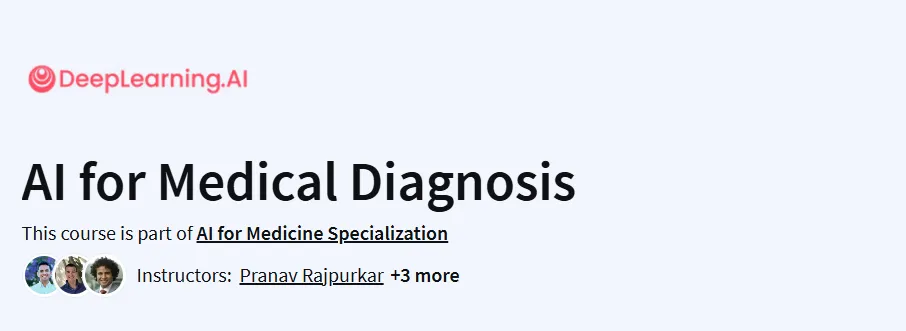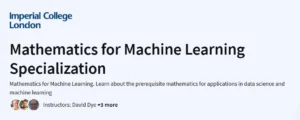What you will learn in AI for Medical Diagnosis Course
Develop convolutional neural network (CNN) models for medical image classification and segmentation.
Diagnose lung and brain disorders using chest X-rays and 3D MRI scans.
Address challenges such as class imbalance and limited data in medical imaging.
Apply best practices in training, validating, and evaluating deep learning models for healthcare applications.
Program Overview
Disease Detection with Computer Vision
⏱️ 8 hours
Introduction to medical image diagnosis using deep learning.
Building and training CNN models for disease classification.
Handling class imbalance and multi-task learning scenarios.
Evaluating Models
⏱️ 4 hours
- Implementing evaluation metrics to assess model performance.
- Understanding concepts like sensitivity, specificity, and AUC.
- Techniques for model validation and testing in medical contexts.
3D Medical Imaging
⏱️8 hours
- Working with 3D MRI data for brain disorder diagnosis.
- Applying 3D CNNs and segmentation techniques.
- Addressing challenges unique to volumetric medical imaging.
Get certificate
Job Outlook
Proficiency in AI for medical diagnosis is valuable for roles such as Medical Imaging Analyst, AI Research Scientist, and Healthcare Data Scientist.
Skills acquired in this course are applicable across various sectors, including hospitals, research institutions, and healthcare technology companies.
Completing this course can enhance your qualifications for positions that require expertise in medical image analysis and AI-driven diagnostics.
Specification: AI for Medical Diagnosis
|
FAQs
- Learn how deep learning models analyze X-rays, MRIs, and other scans.
- Understand applications of AI in disease detection and classification.
- Explore real-world medical case studies and datasets.
- Gain knowledge of ethical and clinical considerations in AI use.
- No medical degree or healthcare experience needed.
- Some programming (Python) and data science knowledge helpful.
- Beginners in healthcare AI can still follow with guided lessons.
- Designed for data scientists, developers, and healthcare enthusiasts.
- Build AI models for detecting diseases from medical scans.
- Apply convolutional neural networks (CNNs) to imaging data.
- Evaluate model accuracy, precision, and limitations.
- Learn the importance of bias, fairness, and explainability in medical AI.
- Work with real medical imaging datasets.
- Train CNN models for diagnostic predictions.
- Analyze outcomes and compare with ground-truth data.
- Understand how AI supports radiologists and clinicians.
- Aspiring AI and machine learning practitioners.
- Healthcare professionals curious about AI tools.
- Students exploring careers in health tech and data science.
- Researchers looking to apply AI in clinical settings.





